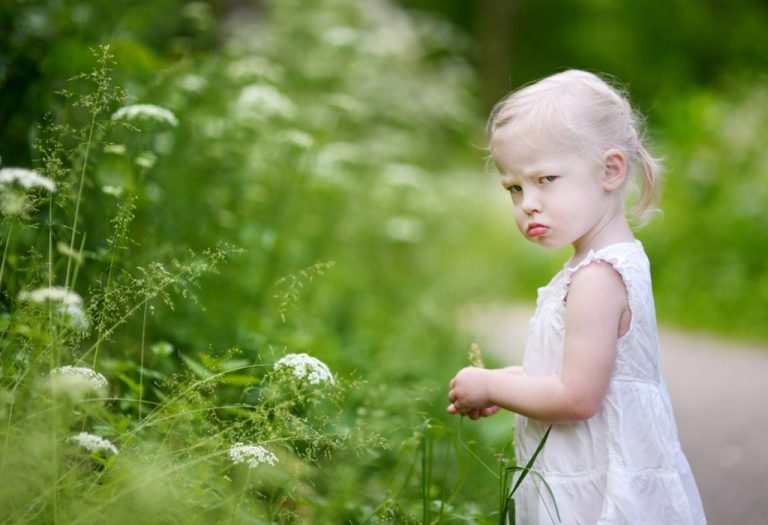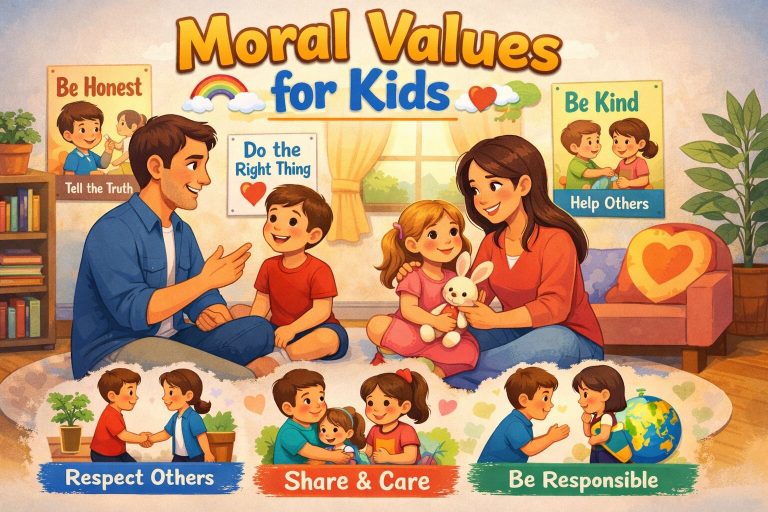How to Raise a Happy Child – Effective Parenting Tips

Raising children is hard, and raising them in a way that they grow up to be happy and content is even harder. As parents, you want to give the best of the best to your child and ensure they develop a positive attitude towards life, but there’s no one definitive way to do it. There’s no single parenting style or technique that guarantees your child will grow up exactly as you hope. Parenting is a journey filled with countless decisions, each contributing to your child’s development. The way you respond to challenges, the values you instill, and the support you provide will all shape who they become. While there may be no perfect formula for parenting, there are certain helpful tips and strategies you can follow to raise a happy little individual. Remember, the key to successful parenting lies in your ability to stay flexible, patient, and consistent, adapting as you and your child grow together.
What Makes a Child Happy?
A child’s happiness is deeply influenced by the environment they grow up in and the emotional support they receive. While toys and gifts can bring momentary joy, true happiness stems from feeling secure, valued, and loved. Creating a nurturing and positive atmosphere can help foster their emotional well-being and overall contentment. Here are a few key factors that contribute to a child’s happiness:
- Quality Time Together: Spending meaningful time with your child helps build a strong emotional bond and makes them feel loved and important.
- Encouragement and Praise: Celebrating your child’s efforts and achievements boosts their self-esteem and motivates them to explore new things.
- Opportunities for Play: Play is essential for children to express themselves, explore their interests, and develop social skills.
- Consistent Routines: Having predictable daily routines provides stability and a sense of security, which helps reduce anxiety and builds confidence.
Benefits of Raising a Happy Child
Raising a happy child is essential not only for their immediate well-being but also for their long-term development. The benefits of nurturing happiness in children extend to various aspects of their lives, influencing their emotional, social, and physical health.
1. Better Emotional Regulation
Raising a happy child helps them develop better emotional regulation skills. They learn to manage their emotions effectively, leading to healthier ways of coping with stress and challenges. This emotional maturity allows them to handle setbacks and frustrations with greater patience and composure.
2. Higher Self-Esteem
Happy children tend to have higher self-esteem. When they feel loved, supported, and valued, they develop a positive self-image, which boosts their confidence in trying new things. As they grow, this sense of self-worth helps them navigate social situations and handle criticism constructively.
3. Stronger Social Skills
A happy child is more likely to engage positively with others developing strong social skills. They are better at building friendships, cooperating, and resolving conflicts in healthy ways. These skills are critical for their future success in relationships, teamwork, and leadership roles.
4. Improved Academic Performance
Children who are emotionally well-adjusted often perform better academically. Happiness fosters a positive mindset, helping them stay focused, motivated, and persistent in their studies. Additionally, happier children tend to have better problem-solving skills and creativity, enhancing their learning experience.
5. Enhanced Resilience
Happy children tend to be more resilient in the face of adversity. Their positive outlook helps them bounce back from failures and challenges, preparing them for life’s ups and downs. This resilience builds a strong foundation for mental toughness, enabling them to handle difficult situations as they grow older.
6. Healthier Relationships
Raising a happy child contributes to healthier relationships throughout their life. Their emotional well-being makes them more empathetic, compassionate, and understanding in personal interactions. These qualities foster meaningful connections with friends, family, and future partners, promoting long-lasting, positive relationships.
7. Better Physical Health
A positive emotional state can also benefit a child’s physical health. Happy children may experience lower stress levels, better sleep, and a stronger immune system, contributing to overall well-being. Their reduced anxiety and stress also lower the risk of developing physical health issues later in life.
Tips to Help You Raise a Happy Child
It becomes necessary to know what makes a child happy if you want to see him grow normally. Here’s how you can ensure that your child grows up happily.
1. Use Positive Reinforcement
Kids need a lot of validation. For children, parents are the first moral support they have to know whether they are doing a certain thing right or not. Positive reinforcement is necessary to raise a confident and happy child. This is why it is important that you appreciate your child whenever he does something right. But do not praise him when he is wrong. False praise can be harmful; he may look for words of appreciation all the time, which could cause motivation-related issues later in life.

2. Teach Your Child to Be Patient
Children are primed to be powered by instant gratification. And in today’s world, with everything being available at the snap of a finger, the need to satisfy any need at a moment’s notice is increasing day by day. It is important to let your kids understand the benefits of long-term enjoyment and just the basic fact that everything takes its own time. By inculcating the values of patience, your kids will stop being their own enemies and won’t feel sad and dejected.
3. Help Your Child Form Good Relationships
Family and friends bring a lot of happiness as well as memorable moments to cherish forever. Kids might bond easily with family and even with their friends. But parents need to teach them to do that with acquaintances or even neighbours. Your own love for your child should not come with a ‘conditions apply’ tag since he needs to rely on you in various matters. By developing relationships with others, it can further empower him in his identity.

4. Teach Your Child to Be Kind
Kids might be possessive in the early days and may not care about others in their life, except for immediate family. Over time, it is necessary for your kids to know that there is more to their life than just themselves. By cultivating empathy and kindness for others, they will begin to discover the happiness of a unique kind that only ever emerges from this. Have honest conversations with your child when he tends to behave in a manner that is unbecoming of him. That will help him establish his own moral compass in the right way and gradually be kind.
5. Make Your Child Independent
Some parents are overprotective about their children and tend to be a helicopter parent. This behaviour can make kids irritated or make them excessively dependent on their parents. Rushing to stop your child from doing something that’s wrong can be harmful to him in the long term, as long as the activity does not have consequences. If your child falls while playing, let him fall and cry for a while. He will gradually learn to dust himself up and start playing again.

6. Establish Proper Routines
At a young age, your child’s mind can be all over the place with the amount of stimulation he receives. That could get him confused and lose focus, causing him to constantly keep wondering what he’s doing. By helping establish a routine, your child can instantly know when to wake up, brush, eat, sleep, study, play, and more. Having a routine also helps him develop a sense of achievement where he has done everything he needs to do in the day. A routine helps repeat activities beneficial to him, and this repetition helps manifest it into a good habit.
7. Work Towards Developing an Interesting Skill
Your child might seem to have a keen interest in a particular thing in his life. It could be as minuscule as collecting different types of leaves to something as complex as understanding how astronauts go into space. He could also be trying his hand at the piano or emulating dance moves by watching videos. Whatever it might be, allow him time to pursue it and guide him in getting better at it. They might not pursue the same skill later on in life, but they would know how to keep at it and get better. Having a hobby will only make them happy and busy!

8. Spend Fun-Filled Moments Together
Your child will cherish the memories spent with you the most. Make time to spend with him in various fun-filled activities. If he likes playing video games, join him in a match and play with each other as well as against each other. Try to disconnect from the role of a parent and an adult and instead become a child and his friend while simply enjoying the time with him. That will further strengthen the bond that you have, help develop trust between you both and make him open up to you more often.
9. Ensure That You Listen to Your Child
Many children do communicate their emotions to their parents. However, these are mostly looked at as the usual childhood rants or tantrums and are easily ignored. Your child might then begin to develop a sense of not being wanted or an inferiority complex. He needs to know that he can talk to you about anything, and you will truly understand what he’s going through. Give him time, drop what you’re doing for a moment and listen to him even when he’s telling you what happened in his favourite cartoon episode.

10. Let Your Child See That You Are Happy Too
No amount of games, parties, or activities will work if you are an unhappy person yourself. Children tend to sense that a lot quicker than others and will tend to think that’s how life usually is. They might feel guilty if they do have something to be happy about. Happiness is contagious, so if you are happy, your child will be happy with you. So stay happy and let your child see that despite various problems that life throws at them when they grow older, they can always find a reason to be happy.
11. Encourage a Growth Mindset
Teach your child to see challenges as a chance to learn and grow. Instead of focusing only on their results, praise their effort and hard work. This helps them become more resilient and face new challenges with a positive attitude, understanding that mistakes are just part of the learning process.
12. Incorporate Mindfulness Practices
Introduce simple mindfulness activities, like deep breathing or meditation, to help your child stay calm and manage their emotions. These activities can reduce stress and help them feel more aware of themselves and their feelings, leading to greater happiness and emotional balance. Teaching them to take a moment to pause and think can be helpful when they face tough situations.
FAQs
1. Can limiting screen time make a child happier?
Yes, limiting screen time can contribute to a child’s happiness. Excessive screen time, especially on social media or video games, can lead to overstimulation, sleep issues, and feelings of isolation. Encouraging other activities like reading, playing outside, or spending time with family can help children develop stronger emotional connections and a more balanced sense of joy.
2. Does a child’s diet affect their happiness?
A child’s diet directly impacts their mood and emotional well-being. A balanced diet rich in fruits, vegetables, and whole grains provides essential nutrients that support brain health and energy levels. Deficiencies in certain vitamins, like B12 or magnesium, can lead to irritability or mood swings, so ensuring proper nutrition is important for raising a happy child.
3. Does learning a musical instrument contribute to a child’s happiness?
Learning a musical instrument can significantly enhance a child’s happiness by building self-confidence and providing a sense of achievement. Music helps children express their emotions, improve focus, and reduce anxiety. The process of mastering an instrument also promotes patience and perseverance, which can lead to long-term emotional satisfaction.
This was all about how to raise a successful and happy child. Raising a child to be a responsible young person and have a happy mindset is not an easy task. The right kind of feedback, interaction, and moderate guidance can help you make your child grow up to be a happy individual. Being a parent, a team player, a friend, and a person he can always rely on will help your child develop his inner personality in a stronger way and make him an adult that you will be extremely proud of.
References/Resources:
1. How Influential Are We as Parents; Children’s Minnesota; https://www.childrensmn.org/educationmaterials/parents/article/12702/how-influential-are-we-as-parents/
2. Childhood Depression: What Parents Need to Know; Nemours Kids Health; https://kidshealth.org/en/parents/understanding-depression.html
3. Mehler-Wex. C, Kölch. M; Depression in Children and Adolescents (Deutsches Ärzteblatt International); National Library of Medicine; https://www.ncbi.nlm.nih.gov/pmc/articles/PMC2696739/; February 2008
4. Depression; NIH: National Institute of Mental Health; https://www.nimh.nih.gov/health/publications/depression
5. About Adverse Childhood Experiences; CDC; https://www.cdc.gov/aces/about/index.html
6. Giving thanks can make you happier; Harvard Health Publishing; https://www.health.harvard.edu/healthbeat/giving-thanks-can-make-you-happier
7. Izzo. F, Baiocco. R, Pistella. J; Children’s and Adolescents’ Happiness and Family Functioning: A Systematic Literature Review (Int J Environ Res Public Health); National Library of Medicine; https://www.ncbi.nlm.nih.gov/pmc/articles/PMC9778774/; December 2022
How to Teach a Child to Share
How to Teach Your Kid to Behave Well
Personality Development Tips for Kids
Ways For Raising A Well Rounded, Successful and Smart Kid
Was This Article Helpful?
Parenting is a huge responsibility, for you as a caregiver, but also for us as a parenting content platform. We understand that and take our responsibility of creating credible content seriously. FirstCry Parenting articles are written and published only after extensive research using factually sound references to deliver quality content that is accurate, validated by experts, and completely reliable. To understand how we go about creating content that is credible, read our editorial policy here.














.svg)
















